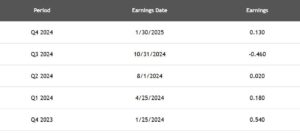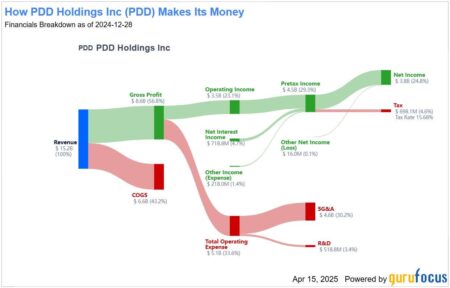Investors are stupefied by a week of whipsawing markets, with little relief in sight.
The seemingly inexorable losses hurt, but it’s the infuriating uncertainty that most worries Wall Street and the C-suite. Many investors and business leaders have no idea what’s coming next — or what they should do.
“The economic policy of the Trump administration is difficult to decipher through the noise of chainsaws and crashing of markets,” Forbes senior contributor and investment management expert Mike O’Sullivan writes. When so much is uncertain, investors usually take a “wait-and-see” approach to most everything, O’Sullivan says.
Untradable Markets
That strategy seems prudent as President Donald Trump’s on-again, off-again tariffs (and foreign retaliation) have tanked stocks, eroded investments, jeopardized retirement savings and increasingly raised the specter of a recession. And it could still get worse.
“High tariffs could increase prices across the board—causing global stagflation and sending stocks down further,” warns Forbes senior Money and Investing contributor Peter Cohan.
And while worry dominates conventional wisdom, there may be opportunities hiding under the losses for patient investors and forward-thinking leaders.
George Bradt, another Forbes contributor, suggests ambitious leaders can use this uncertain moment “as a catalyst for a point of inflection to drive the things you need to do to secure your base and move toward your future aspirations.”
Here, Forbes’ expert contributors offer investing and leadership strategies — some modest, some bold — for navigating the immediate unknown.
Tariff Fallout
Whether you’re a business owner whose supply chain has been derailed, a retiree whose 401(k) is being shredded or a family struggling to make ends meet, “you need to pay attention,” writes Steve Denning, a Forbes Leadership Strategy senior contributor.
President Trump wasn’t coy about his intentions: He’s been calling for more and higher tariffs long before he returned to the White House in January. So why did Wall Street and Main Street seem so surprised?
The sudden timing of the tariff announcements and the hasty delays added even more volatility to an already murky outlook. As Forbes contributor John S. Tobey writes, “the fallout from the tariff increases are not the only uncertainties facing the U.S. economy and financial markets now.”
“Uncertainty leads to lower valuation multiples and there is a lot of uncertainty in the economy and the markets, driven by President Trump’s actions, and not just his tariff policy,” Markets senior contributor Chuck Jones writes on Forbes. “The number of executive orders that are essentially dismantling federal agencies and allowing DOGE to essentially lay off people add more layers to investors’ concerns.”
Still, the start-and-stop tariffs are crushing confidence and compounding investors’ anxiety.
Navigating Uncertainty
“The forces pushing stock prices down are likely to prevail over those sending them back up,” Cohan writes. So bet on continued uncertainty, he says.
“Wall Street has been in an erratic yo-yo pattern since Donald Trump announced, held off, implemented, augmented, and paused worldwide tariffs,” Forbes contributor Lieke ten Brummelhuis writes, adding that the spending cuts, layoffs, deportations, and other Trump administration gambits are “leaving many people feeling anxious and depressed,”
This anxiety is spilling out of boardrooms and executive offices and unnerving entire organizations. This widespread unease hampers “innovation, collaboration, and forward momentum,” Forbes Leadership Strategy Contributor Stephen Miles writes.
“You start to see silo behavior, then micro-silo behavior, as people hunker down to regain control in whatever way they can,” Miles says. To combat this, leaders should “absorb pressure and uncertainty without passing it on.”
“When leaders do this well,” Miles says, “they create a calmer and more focused environment that gives the people around them space to contribute and think clearly.”
Bosses are not therapists, but “their ability to guide teams through turbulence directly impacts employee well-being and organizational resilience,” Forbes contributor Kara Dennison writes.
Dennison offers six business-focused strategies that can be effective because they give employees the right kind of support and empathy to succeed professionally.
For their part, workers who can’t seem to quiet their own disquiet can incorporate self-care practices into their daily personal and professional routines.
Read the full article here
















